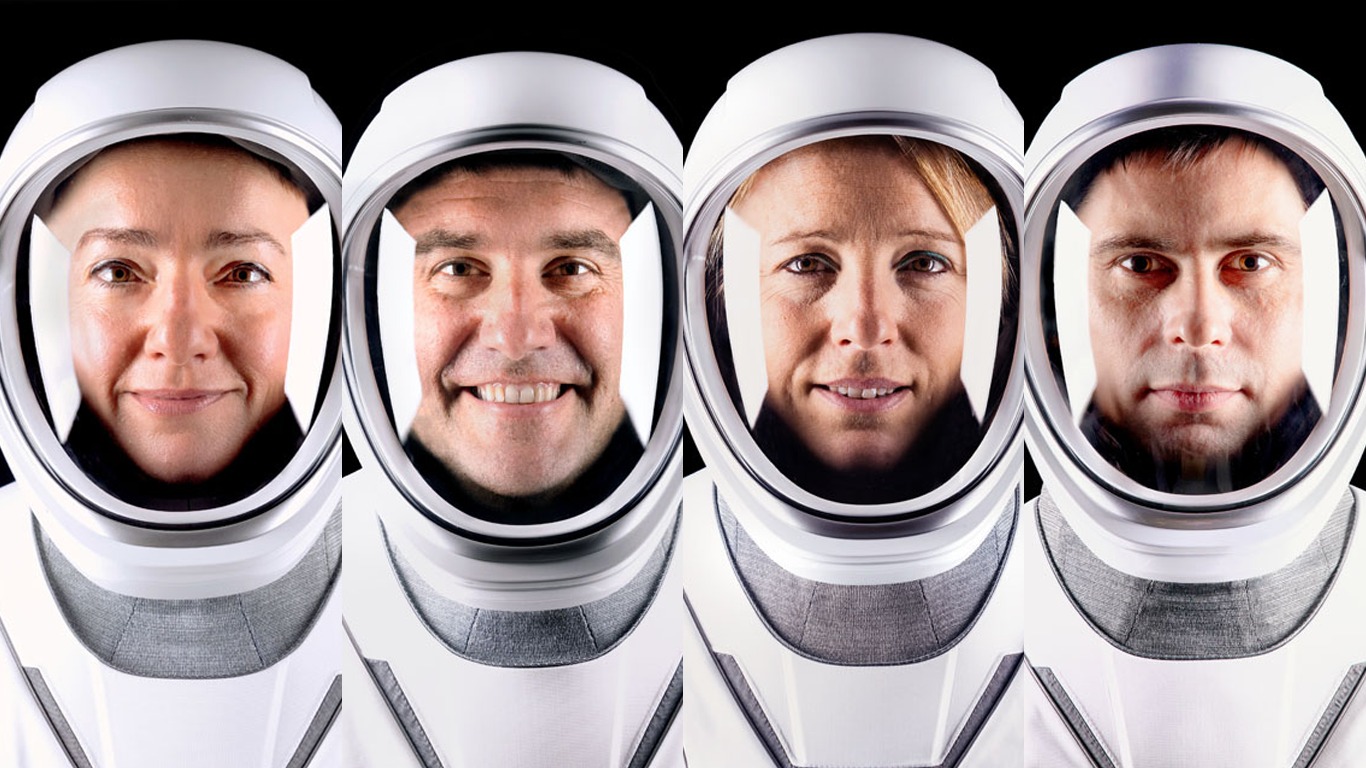Russian Soyuz rocket launches 38 satellites on first fully commercial mission
A Russian Soyuz rocket sent 38 satellites into space Monday (March 22), marking a historic rideshare mission for Russian company GK Launch Services.
This was the first time the company sent a fully commercial space mission aloft with no main, Russian government satellite on the rocket, according to media reports.
The rocket lifted off from Russia's Baikonur Cosmodrome in Kazakhstan at 2:07 a.m. EDT (0607 GMT or 11:07 local time). It was painted blue and white in honor of the cosmodrome's long history of sending people into space, with the 60th anniversary of the first-ever human spaceflight coming up April 12.
Video: Blastoff! Soyuz rocket launches 38 satellites on rideshare mission
"This is the first time this rocket is painted in a white and blue color scheme instead of the standard gray-orange color combination," Russian space agency Roscosmos said in a machine-translated statement, adding the inspiration is the Vostok rocket that sent Gagarin into space in 1961.
Video footage from Baikonur, broadcast by Roscosmos, shows the Soyuz-2.1a rocket lifting off and disappearing into the clouds despite rainy conditions at the launch site. The launch had been delayed two days due to a detected problem in the upper Fregat stage of the rocket, Space News said.
Eighteen countries participated in the rideshare. The Fregat upper stage was expected to send the various satellites into three sun-synchronous orbits, GK Launch Services said, which gives consistent lighting conditions of each satellites' viewpoint of Earth.
Breaking space news, the latest updates on rocket launches, skywatching events and more!
The company confirmed all satellites were deployed on Twitter on Monday, and said it is "awaiting confirmation from customers about establishing contact with the spacecraft." Each customer will then take over operations of its own spacecraft.
The largest satellite of the bunch was the CAS500-1 remote sensing spacecraft from the Republic of Korea, according to Space News. Quoting the Korea Aerospace Research Institute, Space News said that satellite will first do six months of testing in orbit before starting high-resolution Earth observations in October.
The various other satellites have mandates such as scientific experiments, technology demonstrations, Earth observations and solar observations, according to GK Launch Services. Notably, the Italian-led Unisat-7 mission will release six nanosatellites, largely for technology, educational and research purposes.
Follow Elizabeth Howell on Twitter @howellspace. Follow us on Twitter @Spacedotcom and on Facebook.

Elizabeth Howell (she/her), Ph.D., was a staff writer in the spaceflight channel between 2022 and 2024 specializing in Canadian space news. She was contributing writer for Space.com for 10 years from 2012 to 2024. Elizabeth's reporting includes multiple exclusives with the White House, leading world coverage about a lost-and-found space tomato on the International Space Station, witnessing five human spaceflight launches on two continents, flying parabolic, working inside a spacesuit, and participating in a simulated Mars mission. Her latest book, "Why Am I Taller?" (ECW Press, 2022) is co-written with astronaut Dave Williams.

